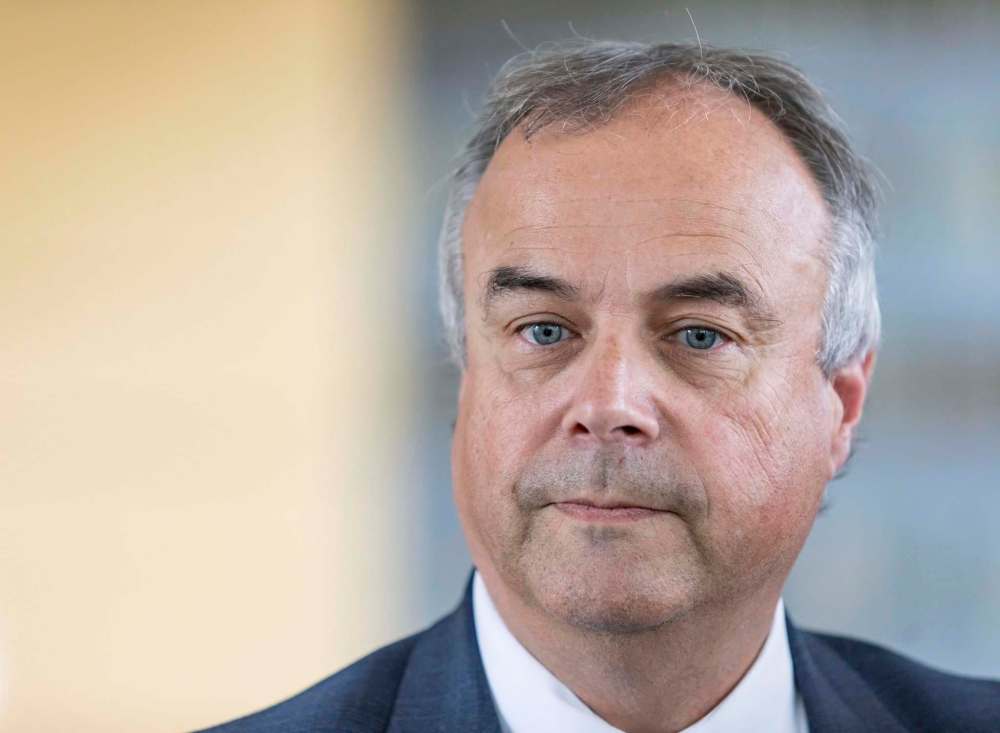WRHA balances budget amid tumultuous year of hospital restructuring
Advertisement
Read this article for free:
or
Already have an account? Log in here »
To continue reading, please subscribe:
Monthly Digital Subscription
$0 for the first 4 weeks*
- Enjoy unlimited reading on winnipegfreepress.com
- Read the E-Edition, our digital replica newspaper
- Access News Break, our award-winning app
- Play interactive puzzles
*No charge for 4 weeks then price increases to the regular rate of $19.00 plus GST every four weeks. Offer available to new and qualified returning subscribers only. Cancel any time.
Monthly Digital Subscription
$4.75/week*
- Enjoy unlimited reading on winnipegfreepress.com
- Read the E-Edition, our digital replica newspaper
- Access News Break, our award-winning app
- Play interactive puzzles
*Billed as $19 plus GST every four weeks. Cancel any time.
To continue reading, please subscribe:
Add Free Press access to your Brandon Sun subscription for only an additional
$1 for the first 4 weeks*
*Your next subscription payment will increase by $1.00 and you will be charged $16.99 plus GST for four weeks. After four weeks, your payment will increase to $23.99 plus GST every four weeks.
Read unlimited articles for free today:
or
Already have an account? Log in here »
Hey there, time traveller!
This article was published 22/10/2019 (2234 days ago), so information in it may no longer be current.
The Winnipeg Regional Health Authority’s annual general meeting Tuesday offered a look back on a year of tremendous transformation within the city’s health-care system — and a look ahead at changes to come beyond the perimeter.
The WRHA released its 2018-19 annual report and financial statements, which showed the authority managed to balance its budget for a second year in a row, after previously running deficits since 2011.
The WRHA also reported fewer critical incident numbers than the fiscal year prior (77, compared with 81 in 2017-18), but fielded more client complaints about care and treatment (984, compared with 841).

Outgoing president and chief executive officer Réal Cloutier said the authority has been more vigilant about collecting community feedback, but also acknowledged the complaints may be attributable to worsening care.
“It’s probably a combination of both. You’ve got concerns that are raised about the changes within the health-care system, but also we’re much more active on seeking out opinion, and getting and recording that opinion,” he said Tuesday.
“The restructuring of the hospital system is complete. So the roles of the hospitals were defined, the urgent care centres have been implemented, the new emergency departments are functioning. The next year is going to be all about stabilization,” Cloutier added later.
“The issue of filling vacancies is absolutely crucial to us because, when you have vacancies, it makes it difficult to provide a full complement of services. We don’t want our staff working overtime because that means they’re tired… If staff are tired, that means they’re probably not working at their optimal levels.”
With the Seven Oaks General Hospital intensive care unit closing at the end of September, Winnipeg’s major health-care system changes are now complete. The province and Shared Health are now mulling more changes to rural and northern Manitoba care.
Ian Shaw, Shared Health’s transformation management lead, and Dr. Brock Wright, president and CEO, previewed some of the next steps to the crowd gathered at Holy Family Place.
The pair said Manitoba’s first provincial clinical and preventive services plan is scheduled to be released within the next 60 days (later confirmed by a provincial spokesperson). It will outline ways to reach patients around the province and spread out resources in hopes of making commutes to Winnipeg for health-care services less necessary.
Wright said the current hospital system was designed in the 1950s, largely to respond to acute injuries or illnesses. Now, it’s most often challenged by patients with chronic diseases who could use less institution-based and more personal care, he said.
“So there’s a strong emphasis in this evolving plan on trying to really build up our capacity to look after patients in the community. That makes a lot of sense for patients suffering from chronic disease and it gives us an opportunity to provide more and more of that care closer to home, so fewer patients have to travel to Winnipeg,” Wright said.
Shaw added the clinical and preventive services plan — which will be a five-year outlook updated annually — will also focus on beefing up health-care technology.
“Manitoba has a really large jurisdiction with a relatively small population outside of (Winnipeg), so (projects such as) Telehealth, expanding digital patient records, being able to have consultation services that allow providers that are working in rural areas to be able to have a support from a clinical specialist (elsewhere)… I think those kinds of investments are also part of a strategy that we’ll see coming.”
jessica.botelho@freepress.mb.ca
Twitter: @_jessbu

